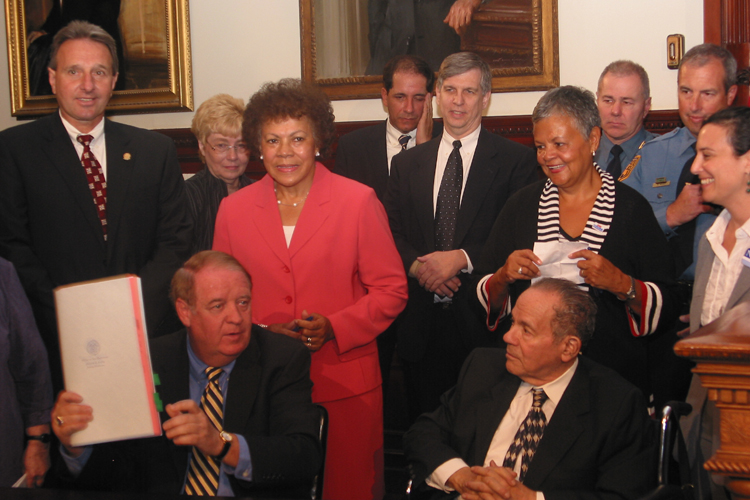
TRENTON – A comprehensive package of ethics reform bills sponsored by Senate President Richard J. Codey were signed into law today by Governor Corzine. The bipartisan measures focus strongly on ethics training and education for the legislative branch and build on recent efforts to create greater transparency and efficiency in government.
“These bills are part of our ongoing effort to restore the public’s faith in government,” said Sen. Codey (D-Essex). “Mandatory ethics education and training will help avoid conflicts of interests and build on our efforts to create a more open and transparent government. It is essential that the public have confidence in our decision making.”
Introduced earlier this year, the bills were part of a multi-faceted approach to ethics reform that also included policy changes to create greater transparency during the budget process. The following bills were signed into law today:
Bill S-2503: Ethics Training
This bill, which was also sponsored by Sen. Joseph Kyrillos (R- Monmouth, Middlesex) creates a new position of Ethics Counsel to the Legislature and requires that all legislators consult annually with the counsel on the requirements of the ethics laws and rules. Furthermore, it requires all employees of the legislative branch to participate in annual ethics training.
“There is a need for strong, far reaching ethics reforms in the Legislature,” said Sen. Kyrillos. “Mandatory ethics education is a straightforward and simple way to reinforce the values that all public servants must uphold.”
Bill S-2505: Requiring Greater Lobbying Disclosure
This bill tightens the current lobbying disclosure law to require lobbyists to include specific information in their ELEC reports about the budget modifications they are seeking on behalf of their clients. Previous law only required that a lobbyist disclose the name of their client and the nature of the work performed on their behalf, i.e. “budget request.”
Bill S-2506: Expand Prohibition on Use of Campaign Funds
In light of a recent incident where campaign funds were funneled to a charitable organization connected to a former elected official, this bill amends the current law that allows campaign funds to be donated to charitable organizations. The bill now prohibits contributions to any charity of which the elected official or a family member is a paid employee or director.
# # #

